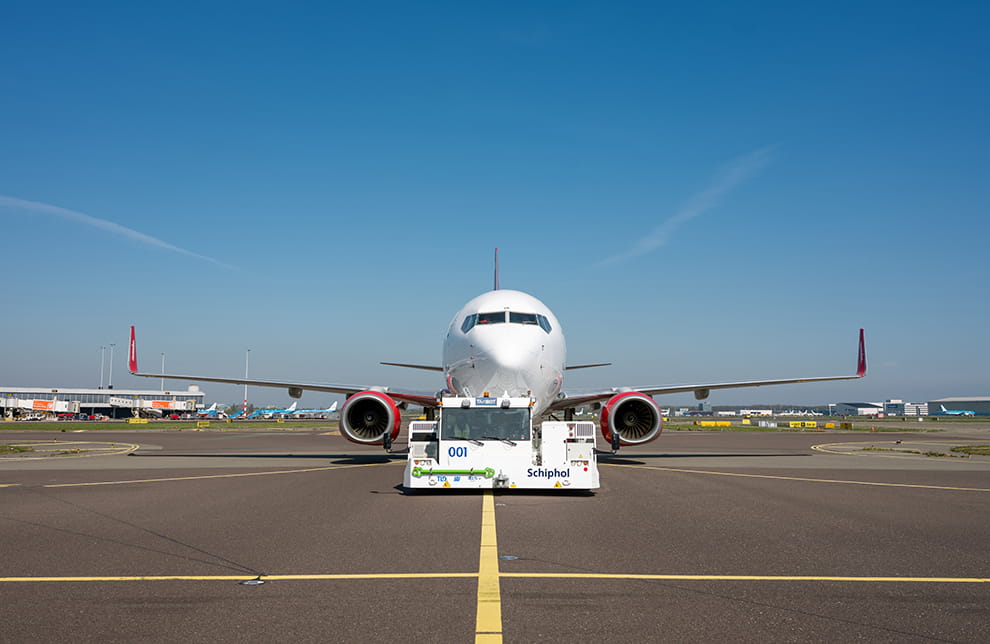Schiphol, together with other parties in the Dutch aviation sector, is investigating extra measures to further reduce the levels of ultrafine particles at the airport and therefore improve local air quality.

Published on: 26 October 2021
Ultrafine particle concentrations
Research carried out by the independent institute TNO on behalf of the airport shows that ultrafine particle concentrations of an average of 100,000 to 120,000 particles per cubic centimetre were measured outside the terminal and piers. To give an idea of another study, an average of up to 100,000 particles per cubic centimetre were measured every 15 minutes on a busy road in the centre of Rotterdam. Annual average concentrations between 10,000 and 80,000 particles per cubic centimetre were measured near roads in European cities.
Sustainable taxiing
The research carried out by TNO is important for employees at the airport. In light of the results of the TNO study, additional measures and an acceleration of measures to further reduce ultrafine particle concentrations are being investigated. The sector is going to investigate the possibility of making sustainable taxiing standard procedure at Schiphol by 2030. This entails aircraft being tugged to and from the runway without using their engines.
Ultrafine particles action plan
Schiphol has been investigating ultrafine particle emissions for a while now. In 2019, an ultrafine particles action plan was drawn up by Schiphol together with the aviation sector in order to reduce emissions produced by traffic to and from the airport, at the airport itself and by aircraft. Important aspects of the plan are investments in new fleet, the use of sustainable fuel (SAF) and making the ground operation more sustainable. Schiphol also asked TNO to conduct research into the concentrations of ultrafine particles on Schiphol grounds. The unions and platform staff were asked to provide input. The National Institute for Public Health and the Environment (RIVM) made a substantive assesment of the research.
Read more about the ultrafine particles research here.
Reduce emissions
The aviation sector aims to make the ground operation fully emission-free by 2030 at the latest, and therefore significantly reduce ultrafine particles. This will be achieved by using energy more efficiently, electrifying ground equipment, introducing shore power at the gates, looking for alternatives to fossil gas and, where possible, making the switch to renewable energy. Also part of the action plan are studies to increase knowledge and measures to improve air quality.